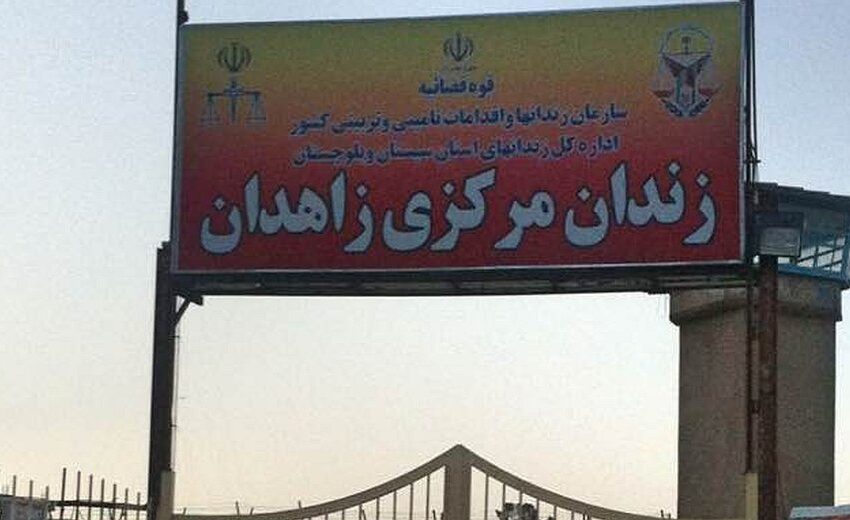Indian State Should Focus on Unconventional Methods: Jamal Nasir Baloch
Corruption and Drug Trade Exposed in Zahedan Central Prison

DOZZAAP (ZAHEDAN): A shocking report has revealed a disturbing network of drug distribution operating within Zahedan Central Prison, facilitated by prison authorities and the Ministry of Intelligence.
The operation reportedly involves a prisoner accused of murder and drug trafficking, who has been running the illicit trade with the support of key officials inside the prison.
According to the Baloch Activists Campaign, the drug network is being headed by an inmate from Block 8, a man who, along with his two brothers, is serving a prison sentence for murder and the possession of 6 kilograms of crystal meth. Despite his criminal past, the inmate has allegedly been able to continue his illicit activities, including the distribution of crystal meth among other prisoners, without facing any legal repercussions.
An informed source, who spoke to the campaign on condition of anonymity, revealed that the inmate’s operation has been thriving thanks to the backing of certain security and intelligence officials. “This inmate has been distributing drugs freely among the prisoners, without encountering any obstacles or legal action from the prison authorities,” the source said.
The report also highlights that the drug lord has been using his position of power to exert control over the prison population. Not only has he continued his illegal activities, but he has also engaged in repressive actions against Sunni prisoners.
According to the source, the inmate has prevented congregational prayers and Taraweeh during the holy month of Ramadan, subjecting Sunni prisoners to further discrimination. These actions have reportedly been carried out in complete silence from the prison authorities, with no official intervention.
The situation at Zahedan Central Prison reflects a broader issue of organized corruption within the judicial and security systems in Sistan and Baluchestan. Despite being one of the most notorious prisons in Iran, Zahedan Central Prison has become a focal point for this corruption, with high-ranking officials allegedly turning a blind eye to the unlawful activities taking place inside.
In light of these revelations, it is critical to acknowledge the broader pattern of hypocrisy in Iran’s legal system, particularly in cases involving drug-related offenses. Iran has executed hundreds of Baloch and individuals from other oppressed nations, often under accusations of drug trafficking. The country’s strict anti-narcotics laws carry the death penalty for such offenses.
However, when state officials are implicated in similar crimes, they are quietly pardoned, and their involvement is either ignored or deliberately concealed. This glaring double standard exposes the systemic corruption that enables officials to operate with impunity, while marginalized communities face brutal and disproportionate punishment.
Just last week, Iranian authorities executed at least 20 Baloch inmates, most of whom were accused of drug-related charges. These executions are part of a broader trend of punitive crackdowns disproportionately targeting ethnic and religious minorities, raising urgent concerns about the fairness and impartiality of the judicial process in Iran.
In response to the findings, the Baloch Activists Campaign is calling on international human rights organizations to take action. The organization is urging global bodies to launch an independent investigation into the ongoing human rights violations at Zahedan Central Prison.
The campaign has called for the establishment of an international fact-finding mission, potentially in collaboration with the United Nations, to document the prison’s conditions and assess the role of security forces in facilitating drug trafficking and the widespread discrimination faced by Sunni prisoners.
The report warns that failing to address these grave human rights abuses will only perpetuate the suffering of prisoners and further undermine the credibility of Iran’s justice system. The identities of the three brothers involved in the drug distribution network remain confidential, as they continue to wield significant influence inside the prison.









